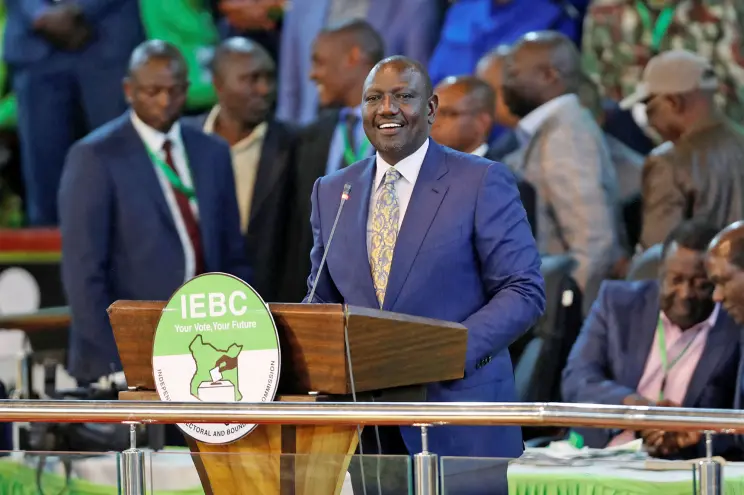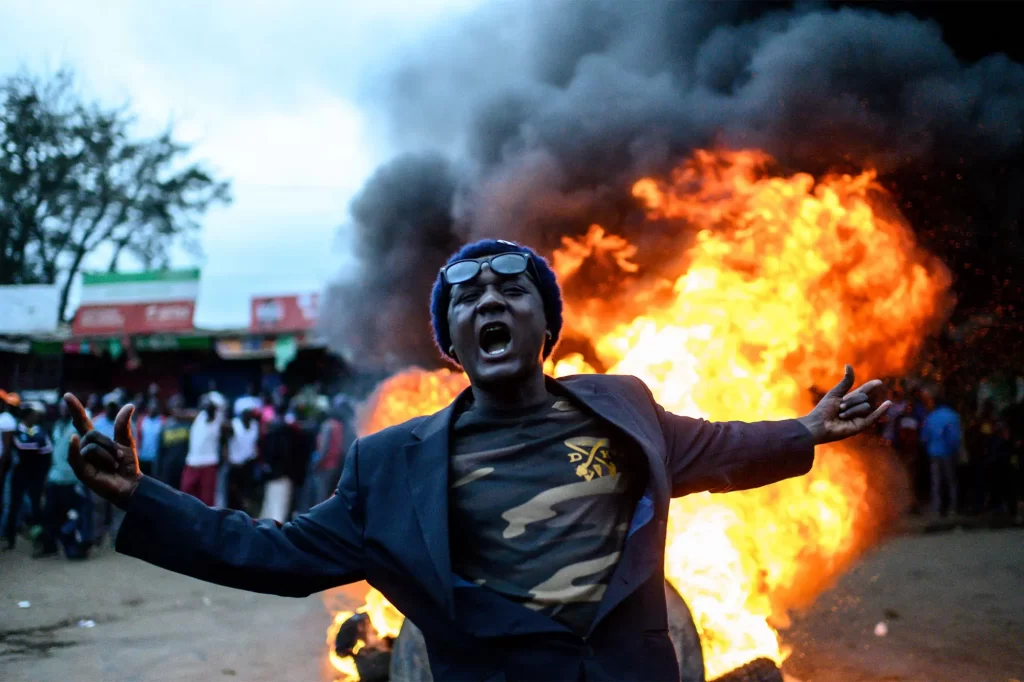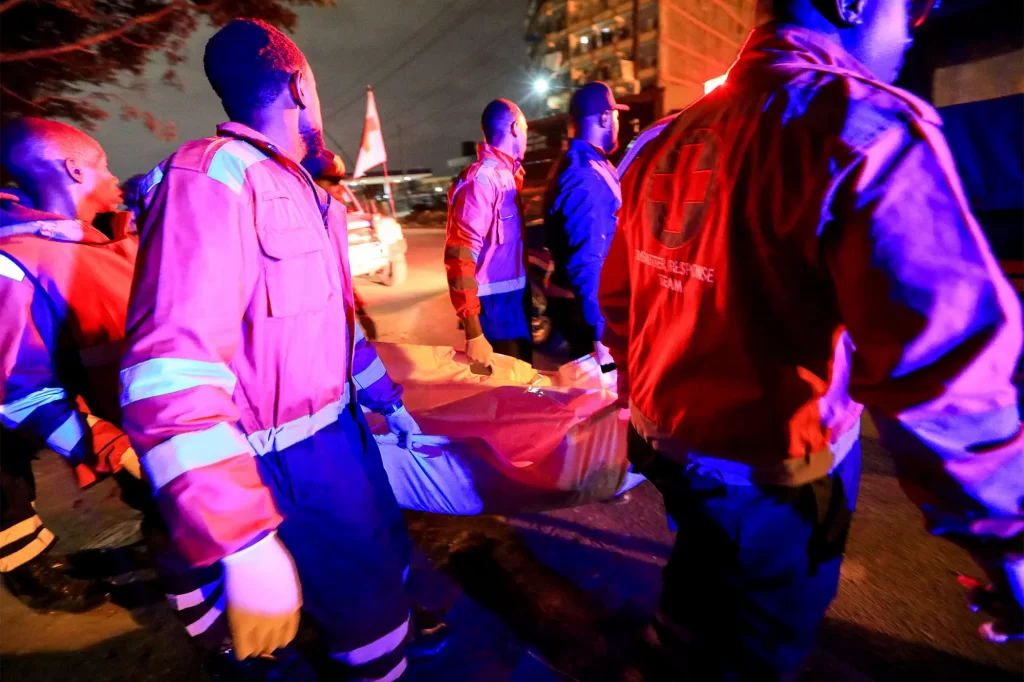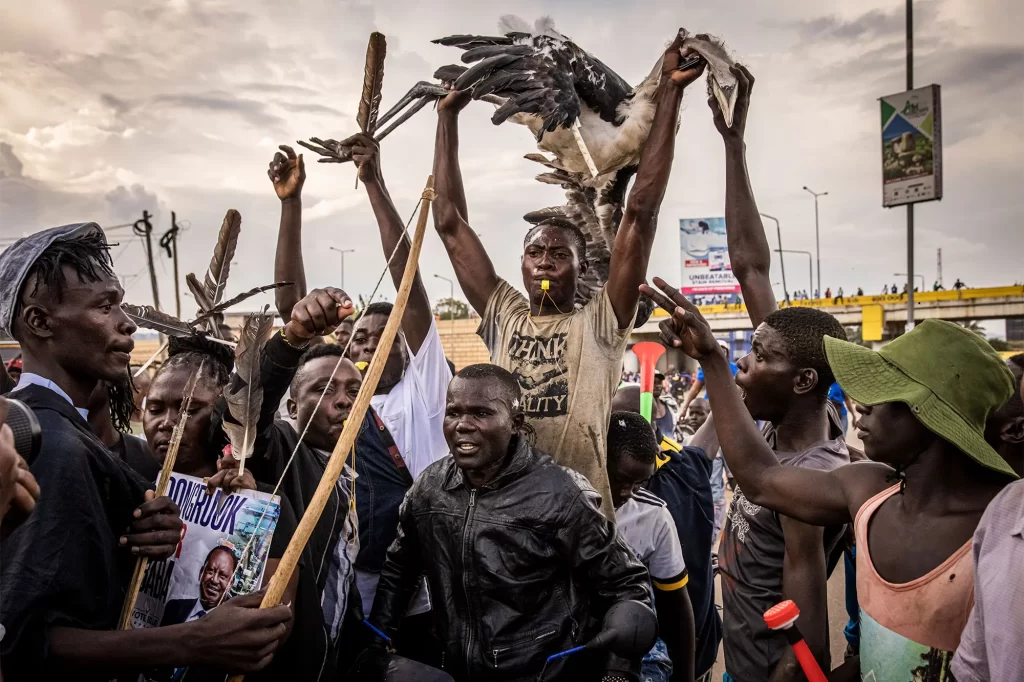
Deputy President William Ruto was declared the winner of a close presidential race by Kenya’s elections chief on Monday, but some senior election officials rejected the outcome, raising concerns about widespread violence similar to that which followed earlier disputed elections.
After being named the victor, Ruto praised the election commission, calling them “heroes,” and said: “There is no going back. In the future, we are looking. To advance, all hands must be on deck.
The 55-year-old promised to reward low-income “hustlers,” making Kenya’s class divisions the focal point of his campaign to become Kenya’s fifth president.
His opponent Raila Odinga and President Uhuru Kenyatta, sons of the country’s first vice president and president, respectively, were both targets of his contempt. After a falling out with Ruto following the most recent election, Kenyatta, who had already reached his two-term presidential limit, endorsed Odinga, who was running for the presidency for the fifth time.

Once in office, Ruto will have to deal with an economic and social crisis in the most developed economy in East Africa, where poor Kenyans are already suffering from the effects of COVID-19 and are now being hit by rising food and fuel prices on a global scale.
The country’s north has been devastated by the worst drought in 40 years, leaving 4.1 million people in need of food assistance while debt levels have skyrocketed.
As Kenyans awaited the official results of the election held nearly a week ago, Ruto, the leader of the Kenya Kwanza (Kenya First) Alliance, had seemed to be ahead of Odinga, the leader of the opposition.
Before Wafula Chebukati, the head of the electoral commission, declared that Ruto had won, Juliana Cherera, the latter’s deputy, had informed the media at a different location that she and three other commissioners disowned the results.
Because of the opaque nature of this final stage of the general election, she said, “we are unable to take ownership of the results that will be announced.”
Seven commissioners make up the electoral commission.
violence in the past
The electoral commission has put in place a number of checks and balances in an effort to stop disputes like the ones that resulted in the violence that resulted in more than 1,200 fatalities after the 2007 election. In 2017, more than 100 people died after the Supreme Court invalidated the preliminary results due to electoral irregularities.
Cherera urged the parties to resolve any disagreements in court amid worries that accusations of vote-rigging could spark violent scenes similar to those that followed presidential elections in 2007 and 2017.
Before Chebukati spoke, there were scuffles, and diplomats and international observers were escorted out of the tallying hall.
Before declaring Ruto the victor, Chebukati stated that two commissioners and the head of the electoral commission had been hurt and were receiving medical attention.
Chebukati reported that Ruto defeated Odinga with 50.49% of the vote to her 48.5%.
Chebukati announced that two commissioners and the head of the electoral commission had been hurt and were receiving medical care before declaring Ruto the winner.
Ruto defeated Odinga, who received 48.5% of the vote, according to Chebukati.
A candidate must receive 50% of the vote plus one to win.
According to Tradeweb data, Kenya’s dollar-denominated government bonds decreased by as much as 2.9 cents per dollar.
U.N. spokesperson Stephane Dujarric stated that the organization had taken note of the outcomes and urged all candidates to “resort to legal channels to address any challenges that may arise.”
The U.S. embassy in Kenya urged all parties to cooperate in order to settle disagreements over the election amicably.
It issued a statement saying, “We ask all political party leaders to continue urging their supporters to remain peaceful and abstain from violence.”
Still ongoing
Odinga stayed away from the announcement. Later, Martha Karua, who was his running mate, tweeted that “it is not over until it is over.”
In a press conference outside the tallying center, Saitabao Kanchory, national chief agent for Raila Odinga’s Azimio La Umoja (Declaration of Unity) Alliance, vowed to “hold Wafula Chebukati… to account to the people of Kenya to deliver a free fair credible election.”

The response was swift in the Odinga strongholds of Kibera in Nairobi and Kisumu.
As people burned piles of tires, several plumes of black smoke rose in the streets of Kibera, mirroring scenes in Kisumu, Kenya, to the west. To disperse the crowds, police used tear gas.
Governor Anyang’ Nyong’o issued a call for calm in Kisumu as unrest erupted in some areas of the lakeside town following the announcement of Ruto’s victory. He claimed that in order to “ensure justice” for Odinga, the Azimio leadership was preparing its response.
Motorcycle drivers honked their horns, people whistled, and shouted, “We need Raila now!,” “Chebukati must go!” and “No Raila, no peace!”

In contrast, the atmosphere in Eldoret, which is where Ruto is from, was jubilant.
“We are overjoyed. I believe in the leader who was chosen, and I believe in the IEBC (the electoral commission),” proclaimed Kenneth Kibitok, a 25-year-old resident of Eldoret.